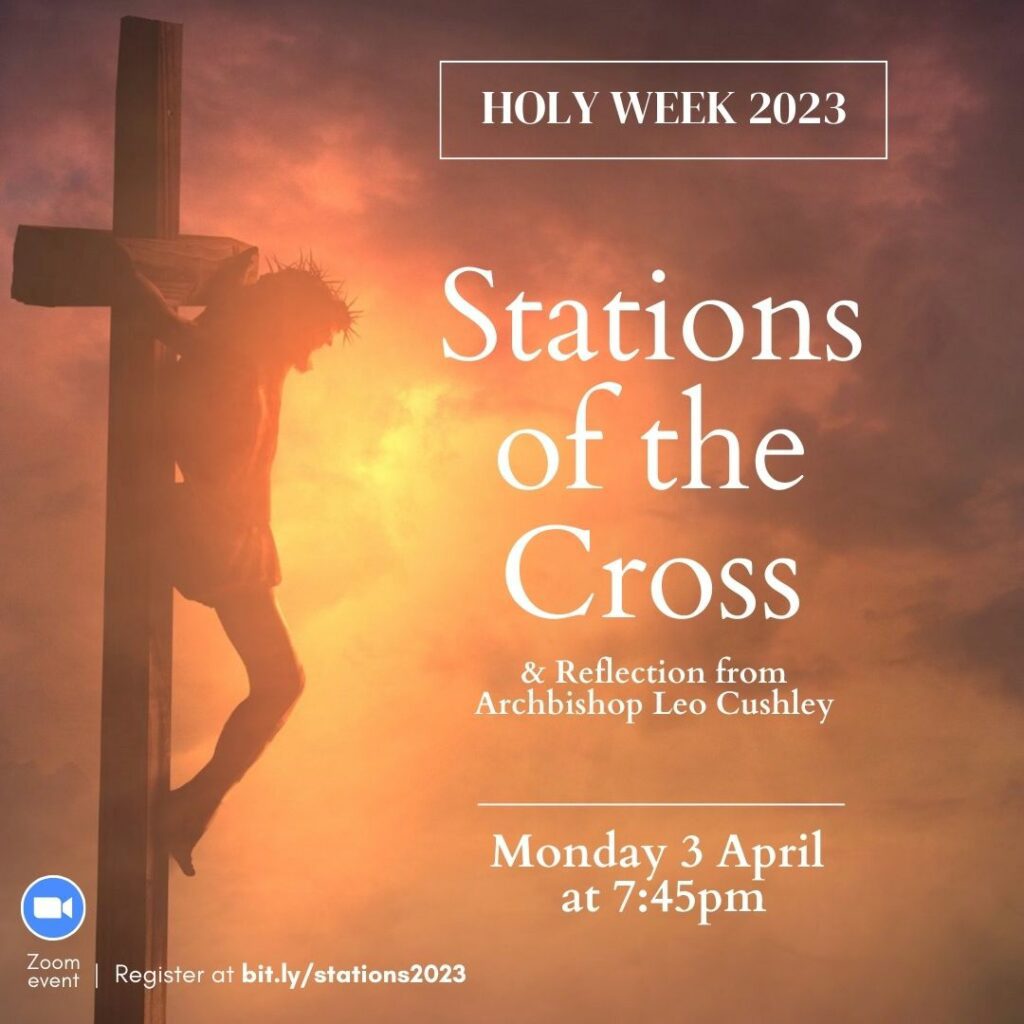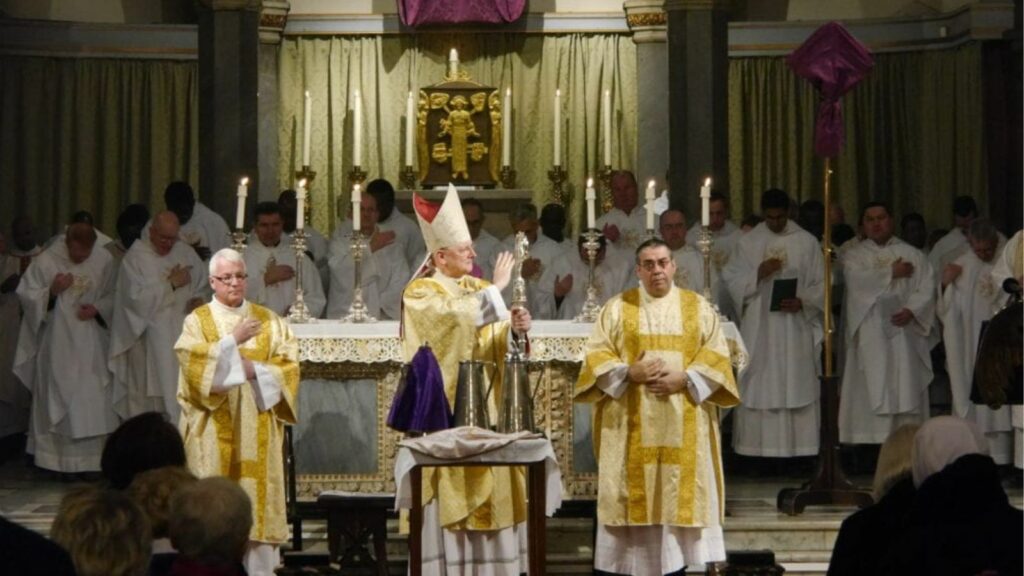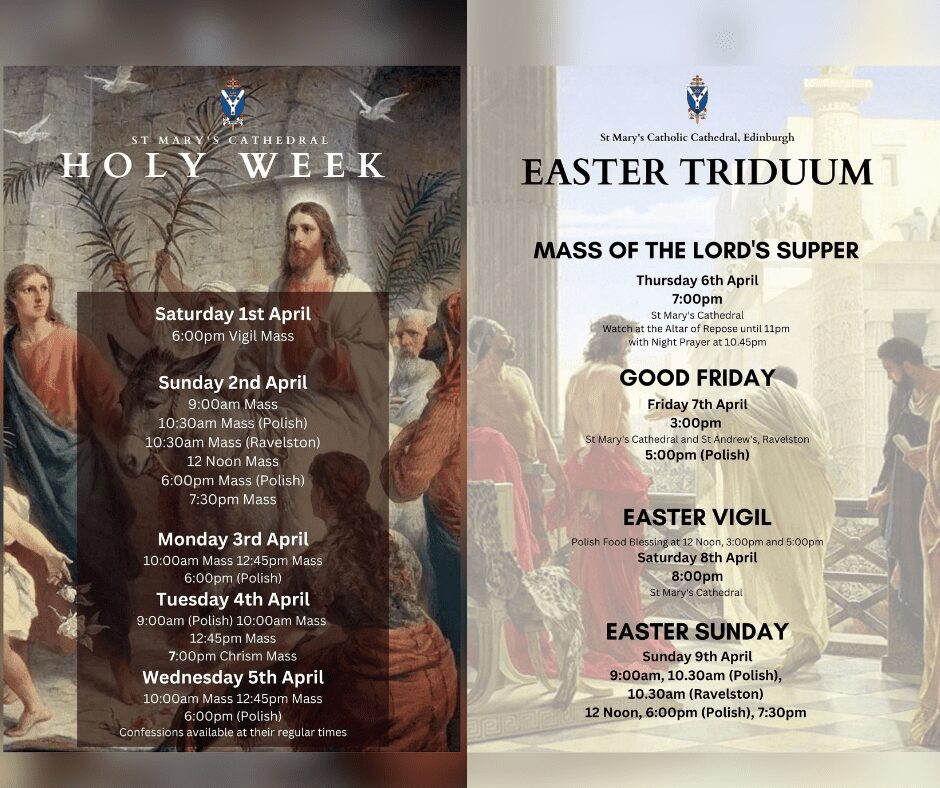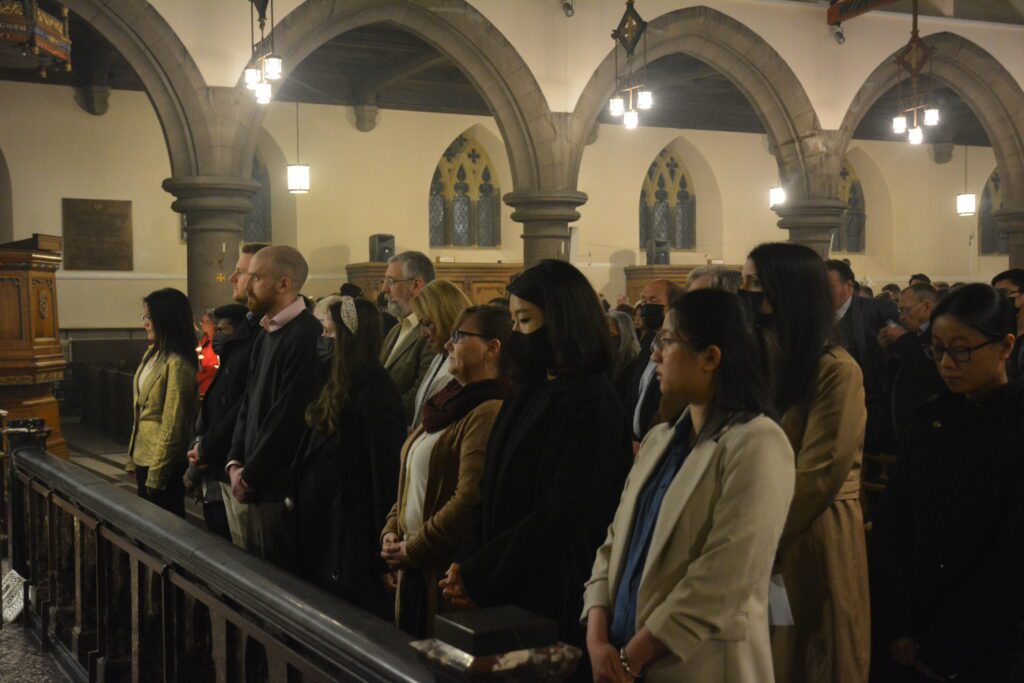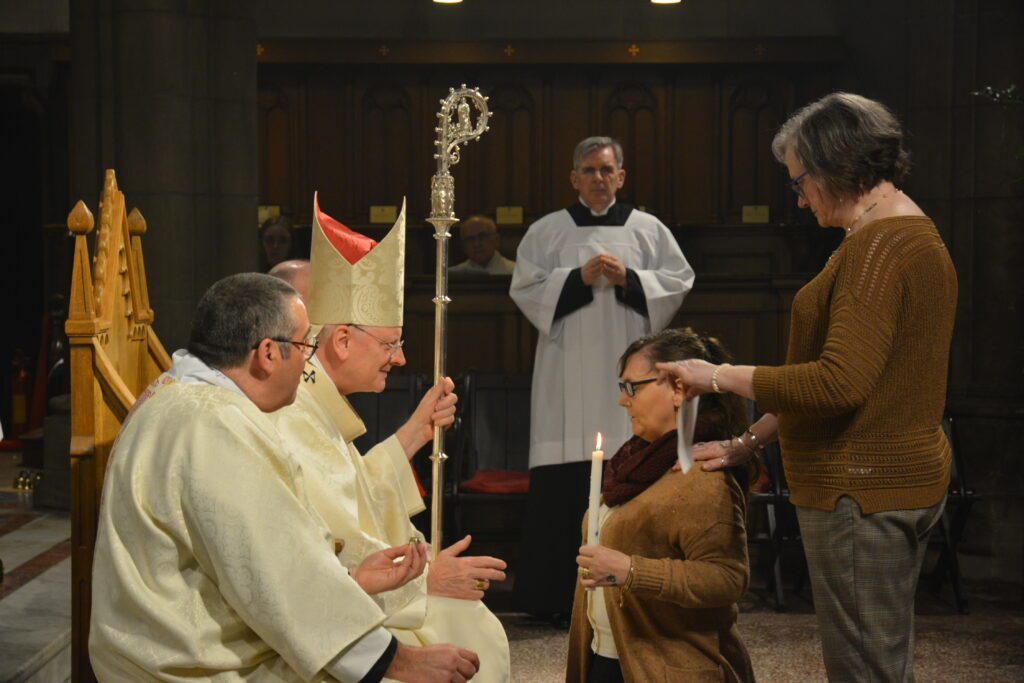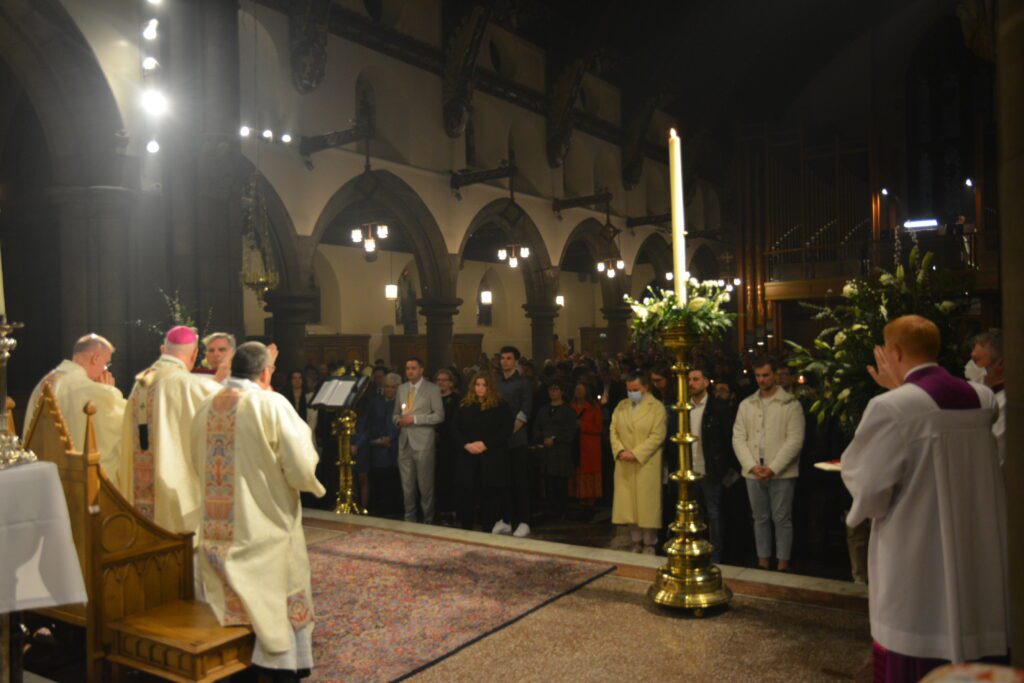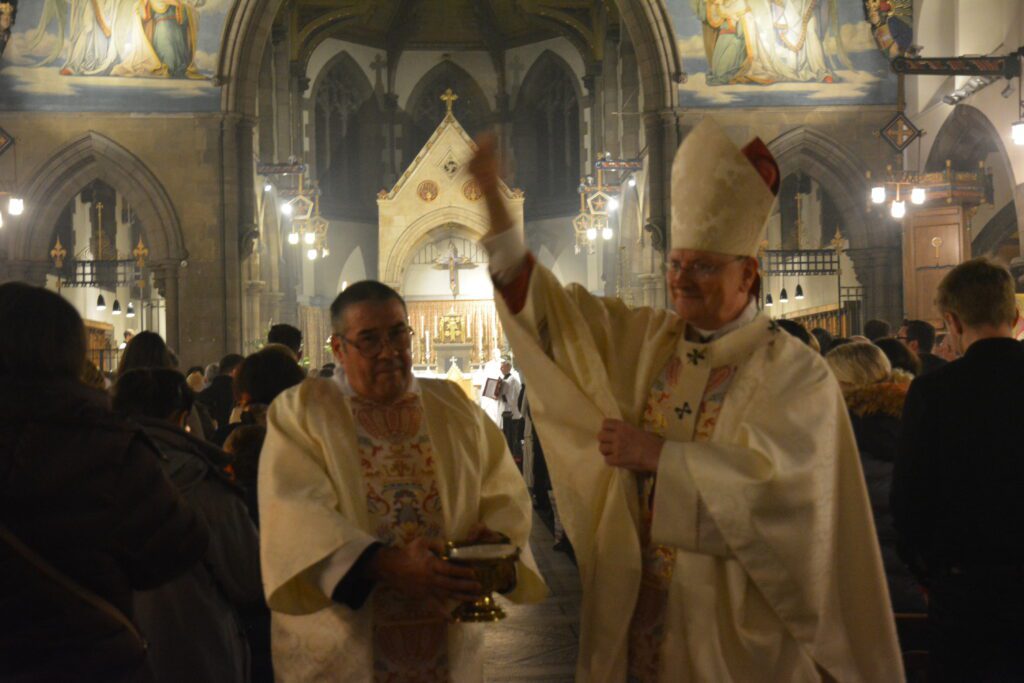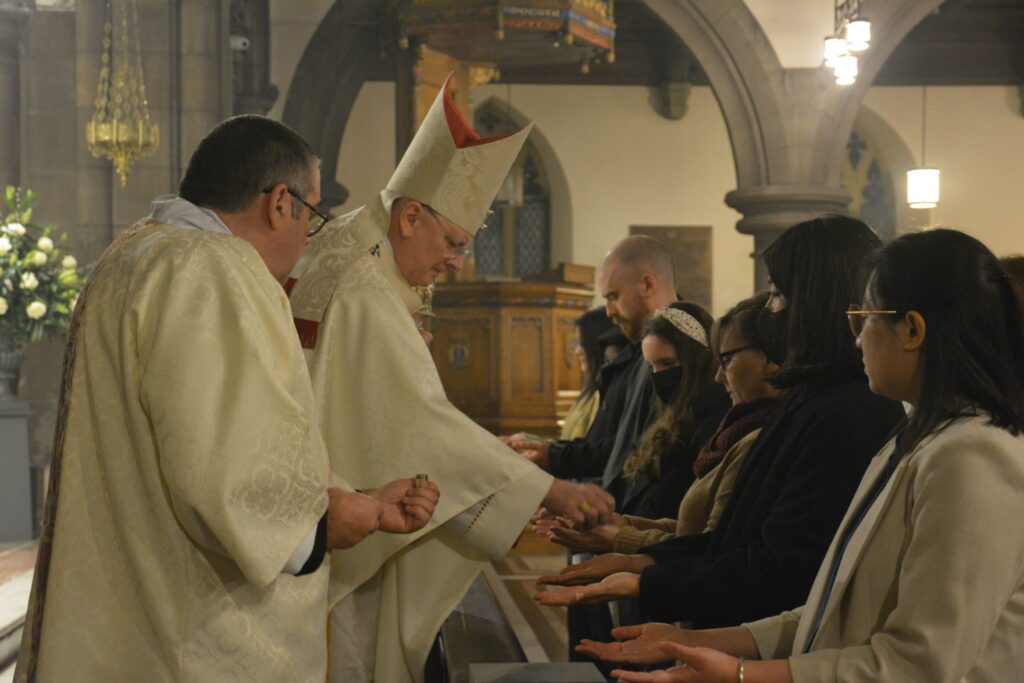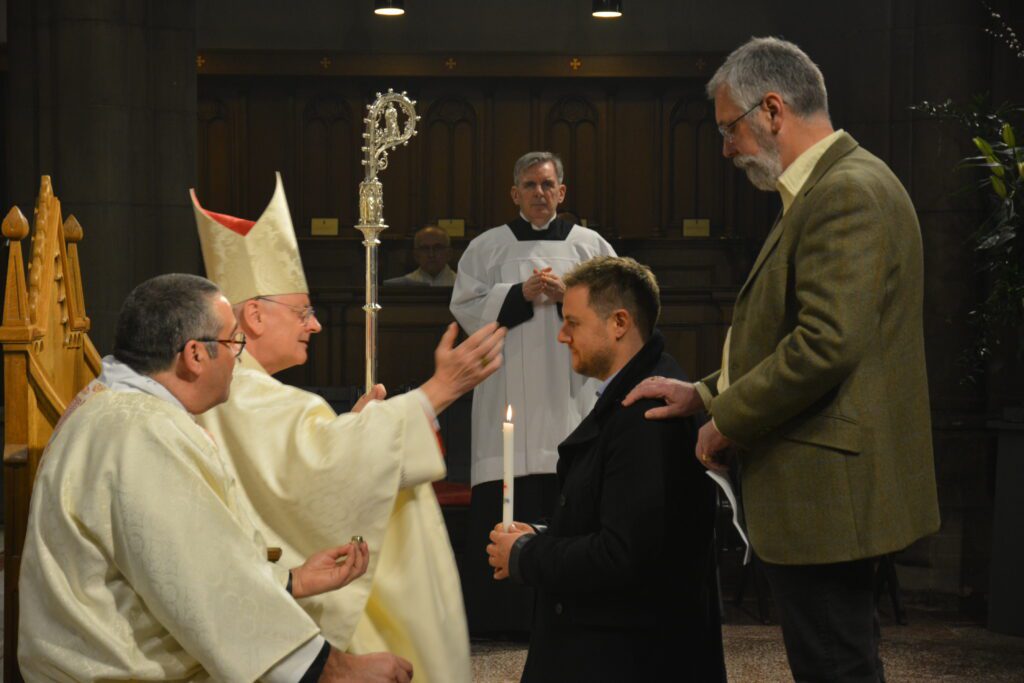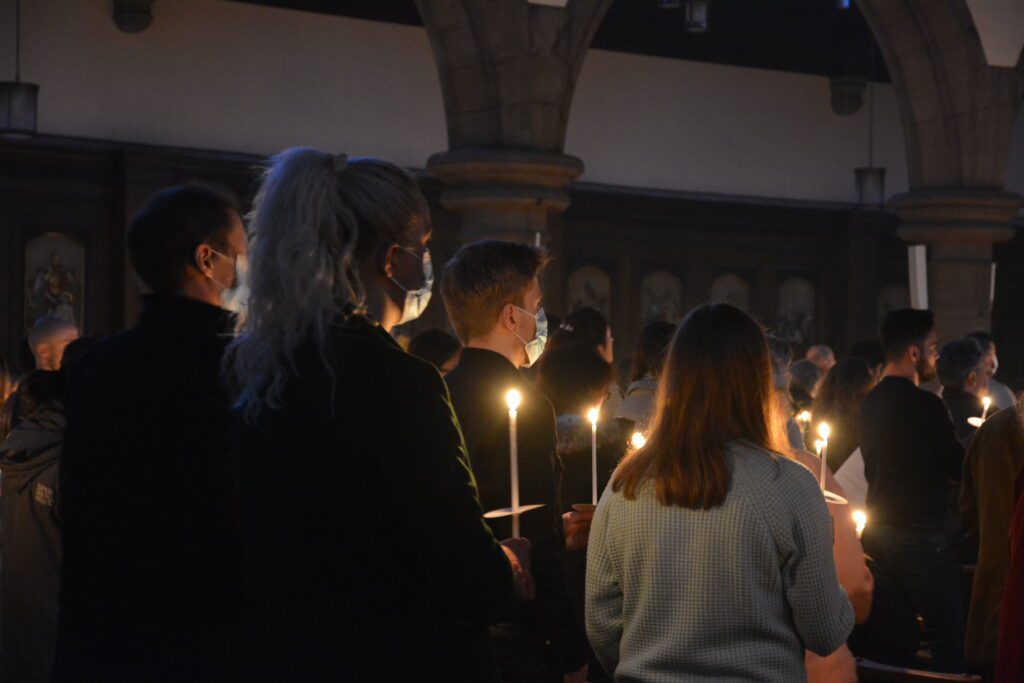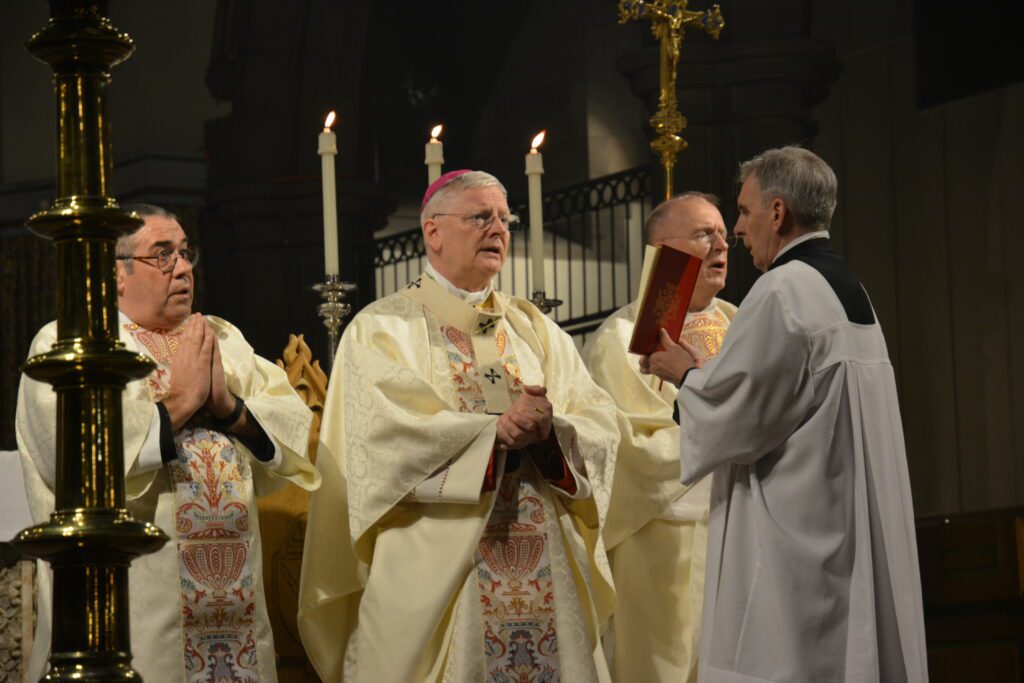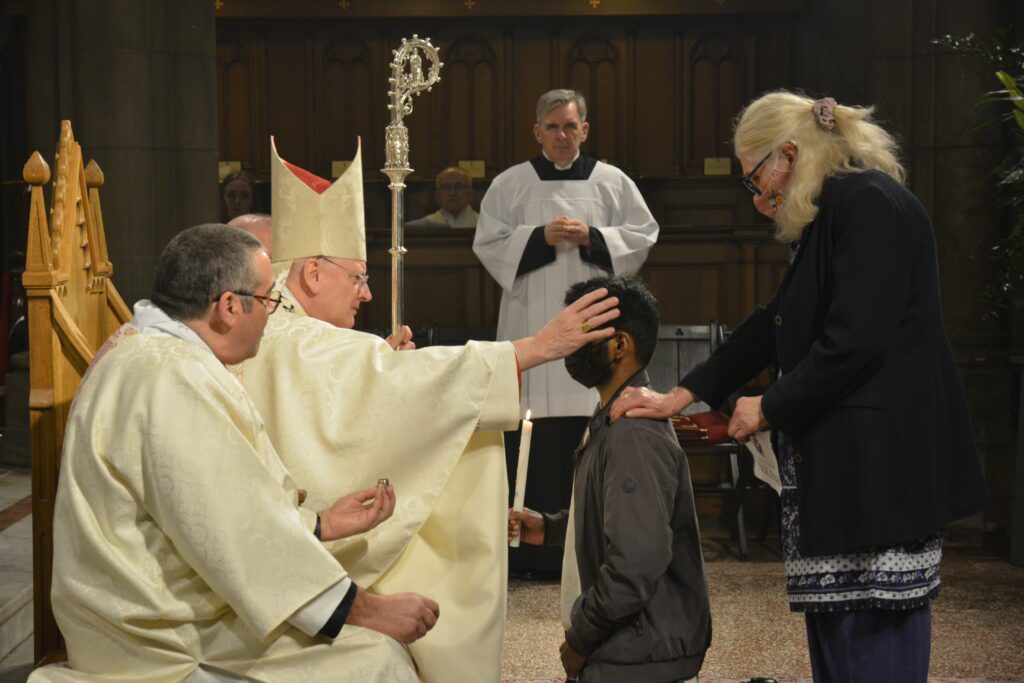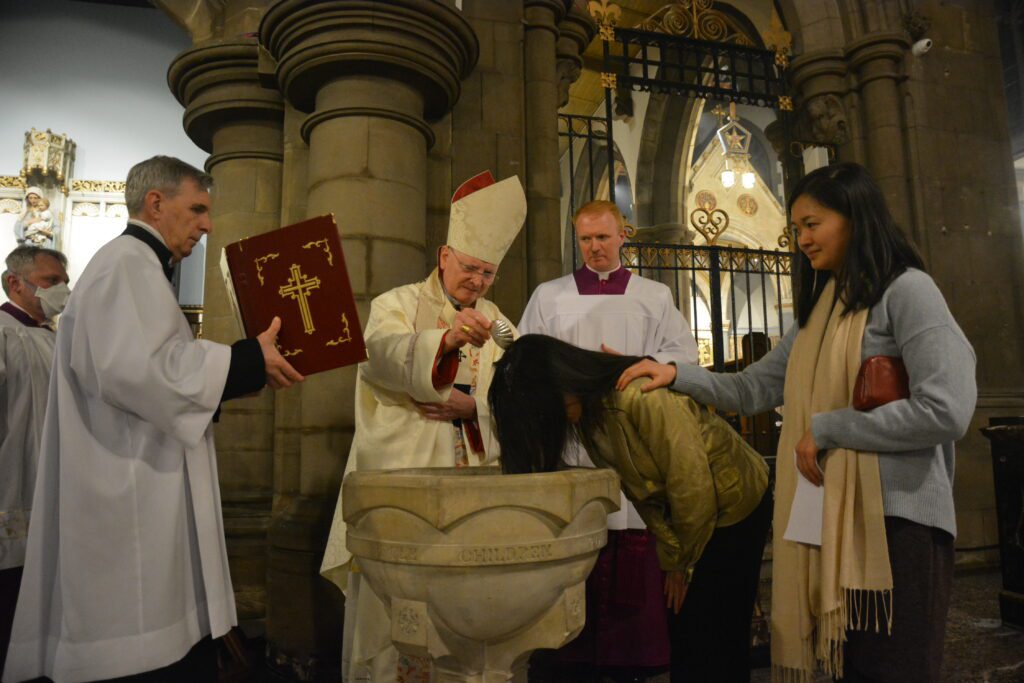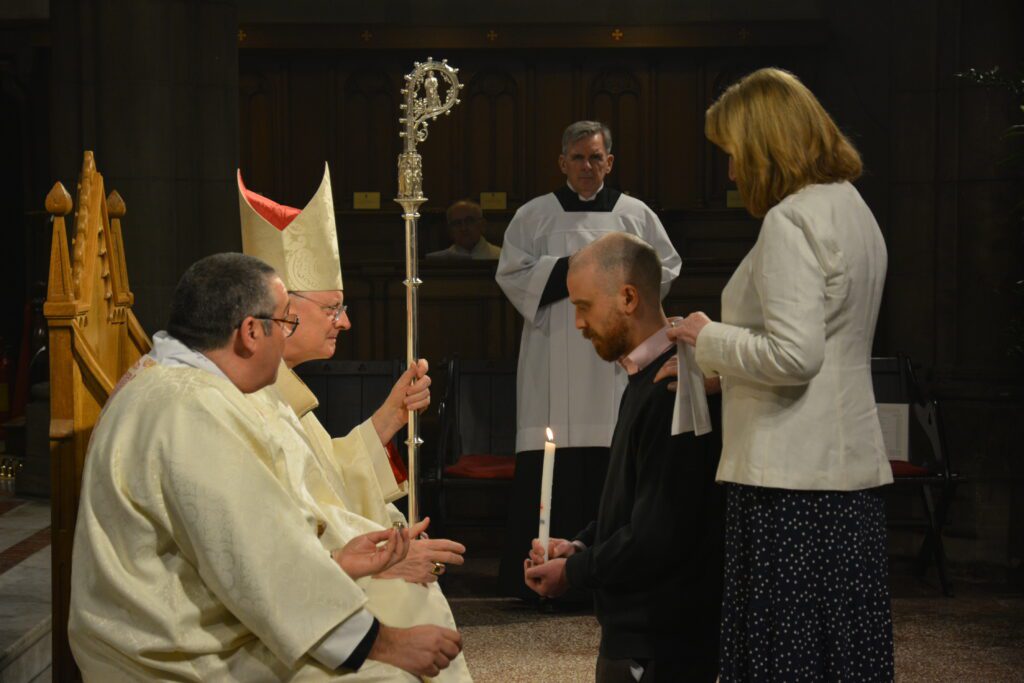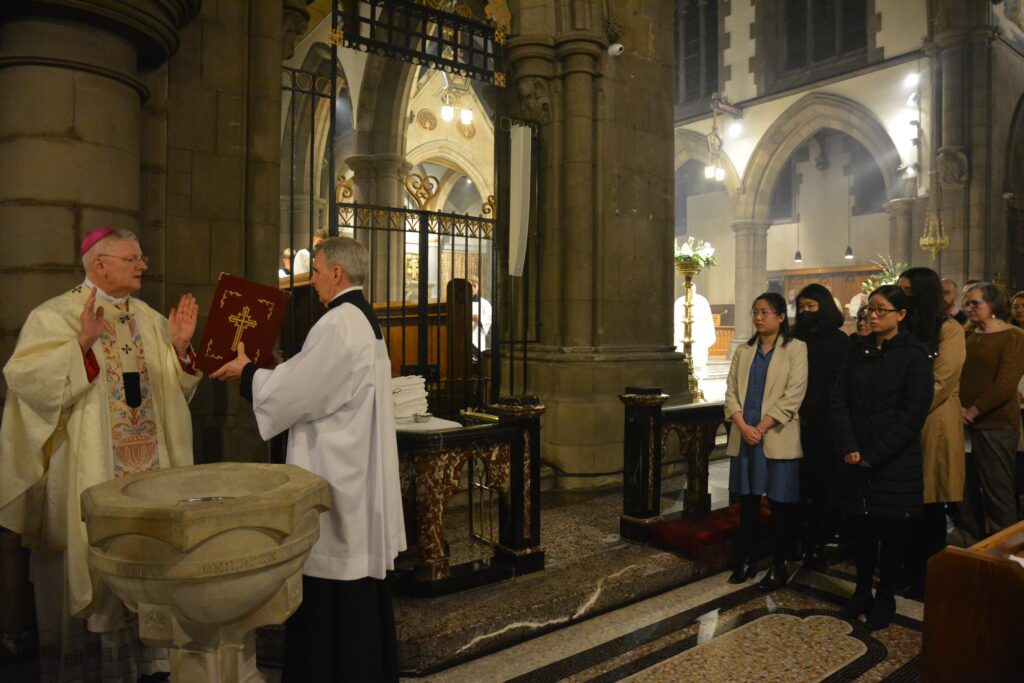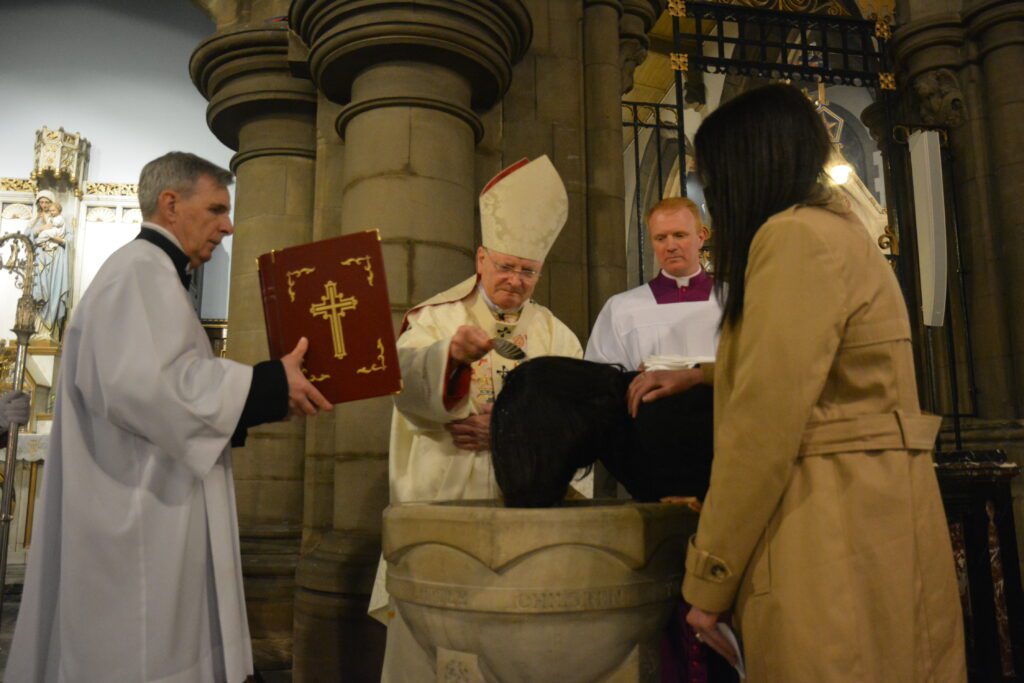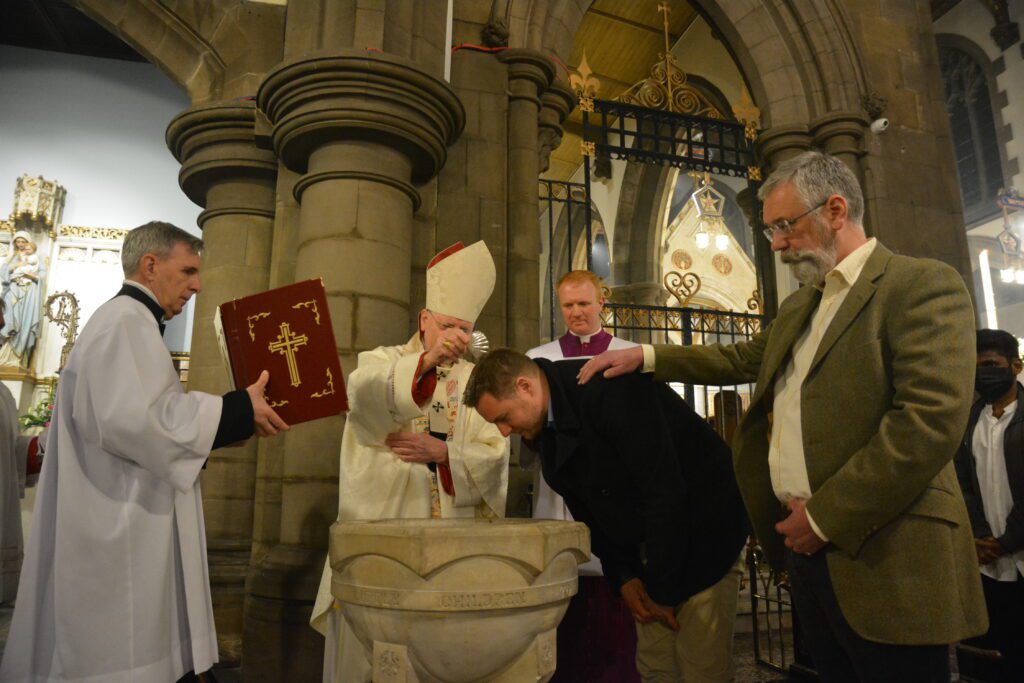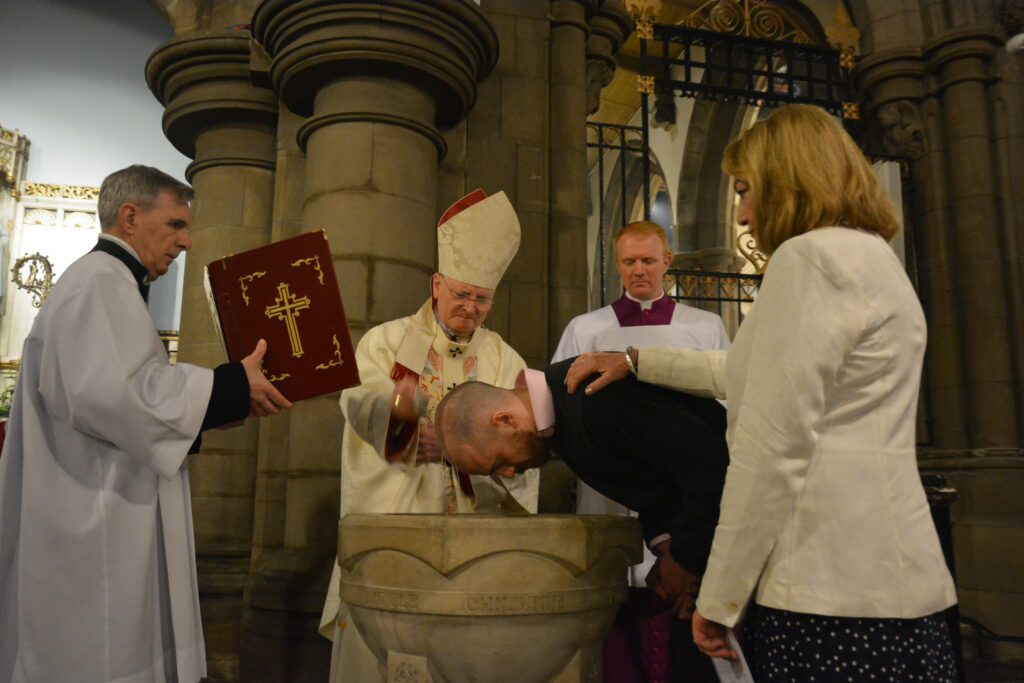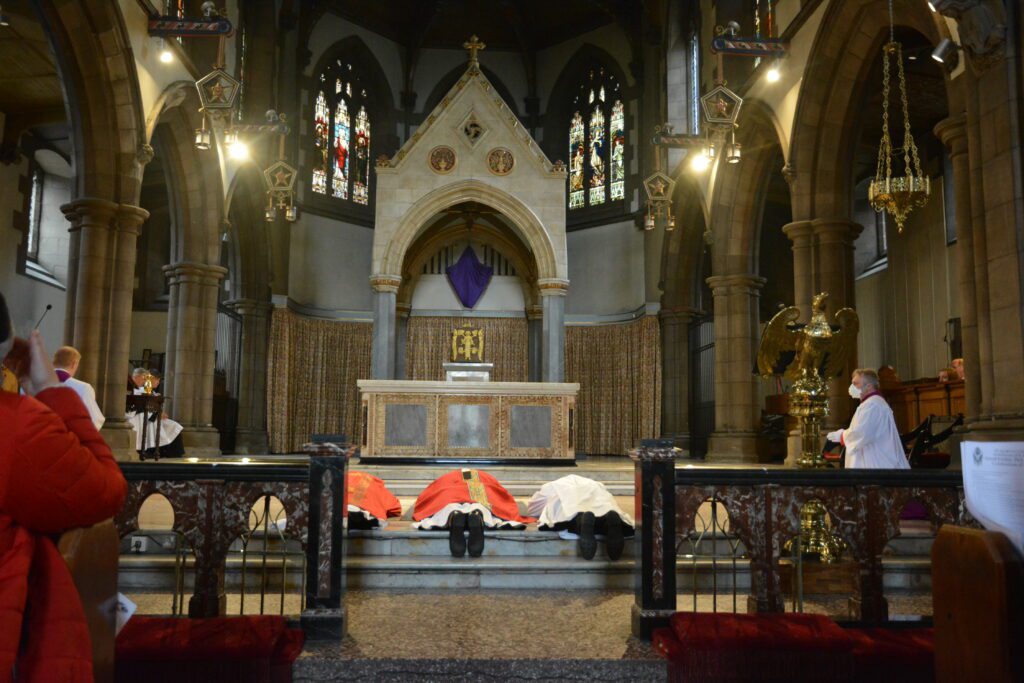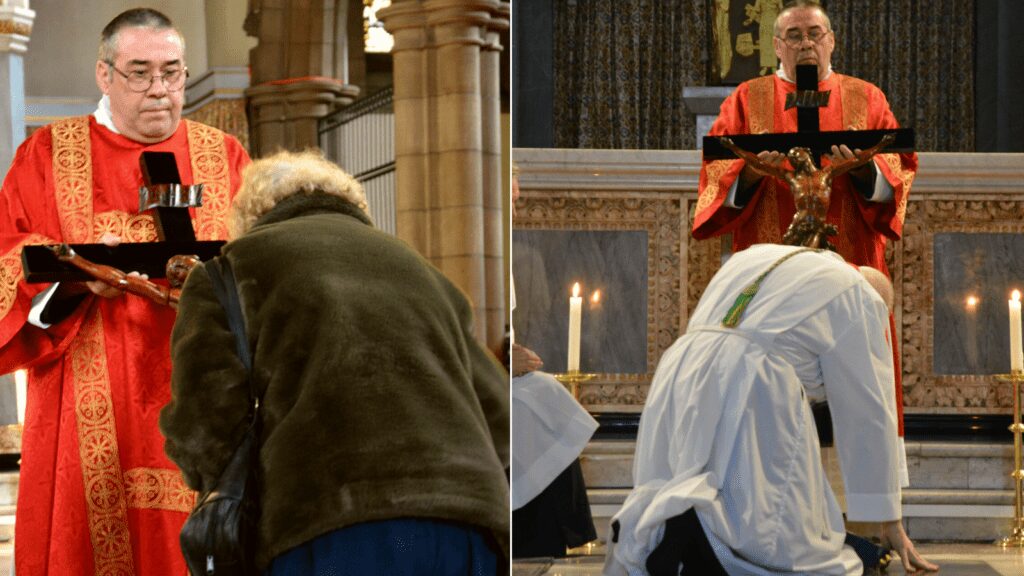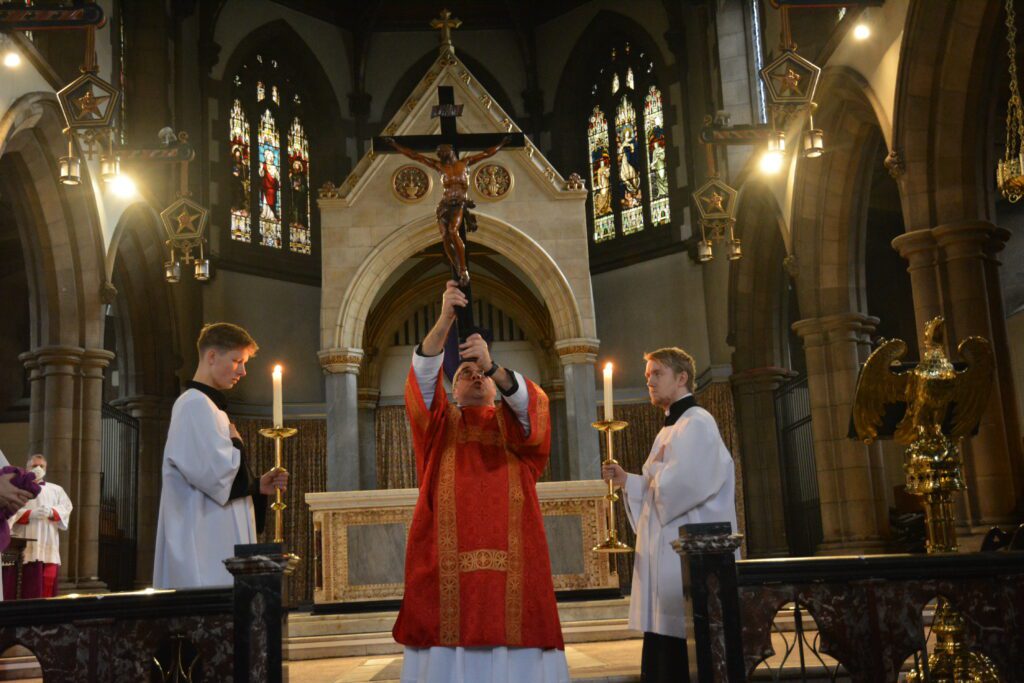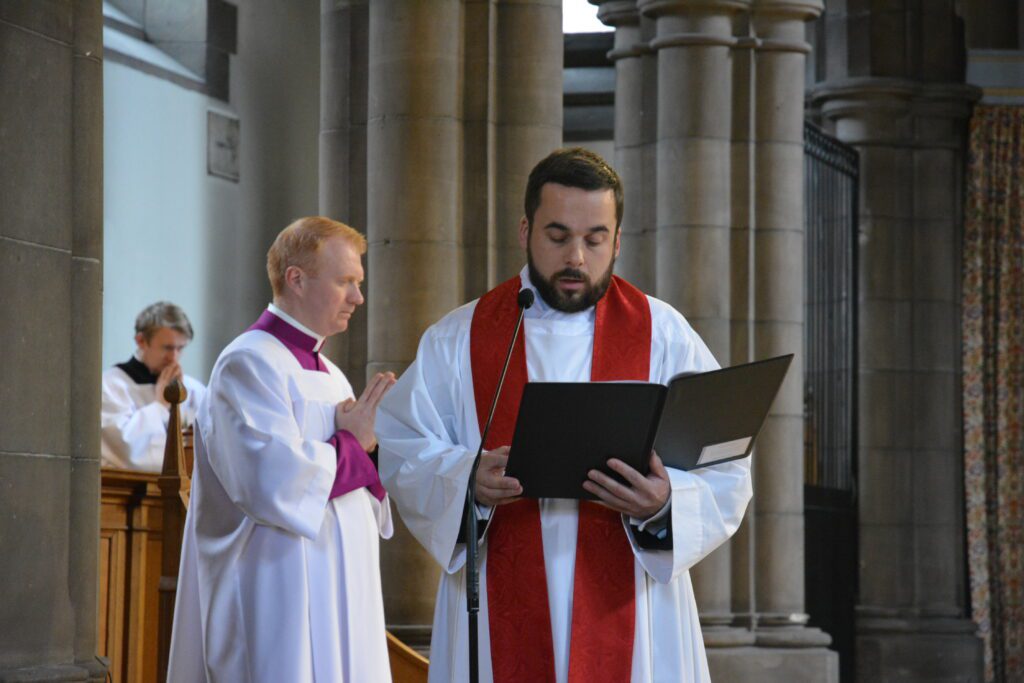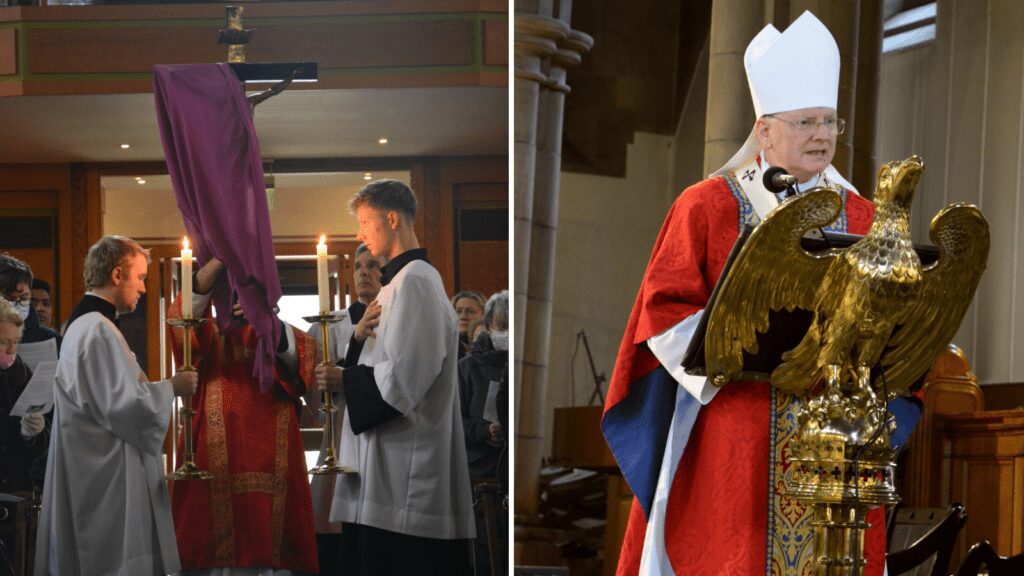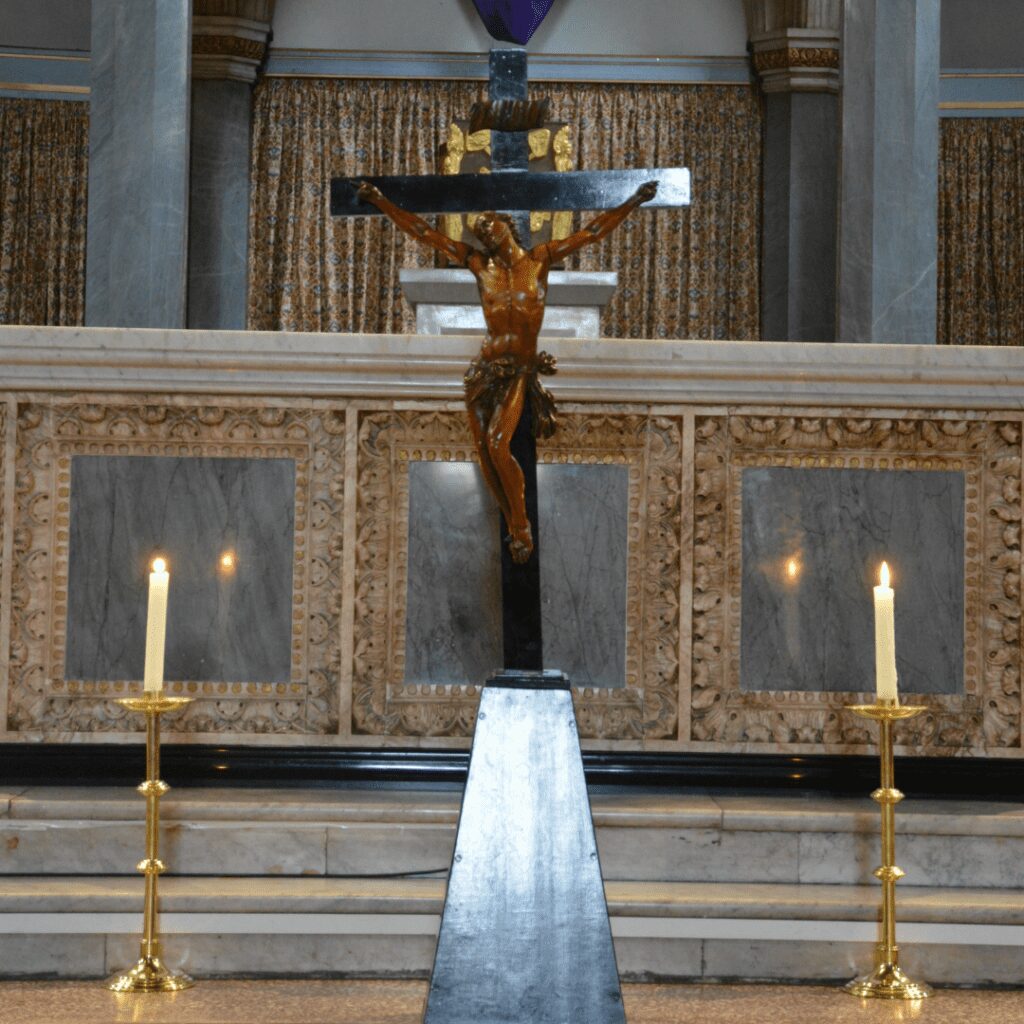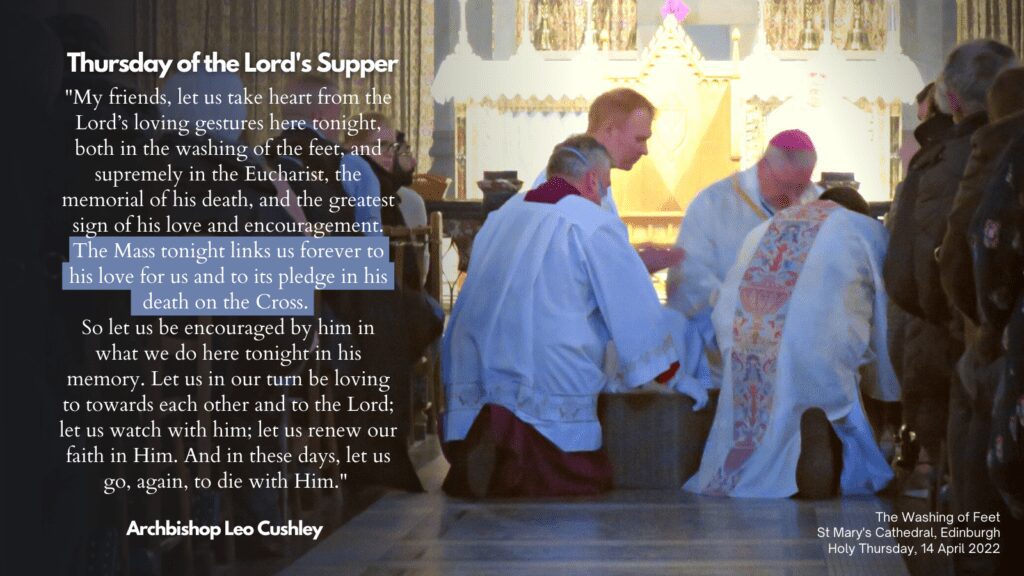Archbishop Leo Cushley reinforced the message that "we are all one in Christ" at tonight's Chrism Mass at St Mary's Cathedral in Edinburgh.
The Chrism Mass sees clergy renew their priestly promises publicly while the oil of baptism, the oil of the sick and the oil of catechumens are blessed for distribution to parishes.
Archbishop Leo said: "We gather as God’s priestly people, doing so solemnly, and in view of the great Christian festival of Easter.
And we do this all together, in our various orders and ranks, and all of us as one body, as royal priests, and all with one thing in view, the one thing that is necessary: after all, the Church exists to bear witness to the mystery of God’s love incarnate in the person of Jesus Christ, crucified and risen from the dead.
And we do that together, or not at all. Everything else is secondary." Read the homily below.
Homily of Archbishop Leo Cushley of St Andrews & Edinburgh
Chrism Mass, 12 April 2022, St Mary’s Metropolitan Cathedral, Edinburgh
Dear brothers and sisters in Christ,
A very warm welcome to the Chrism Mass in this, the Year of Grace 2022.
Many years ago, a famous pope of Rome, upon being consecrated bishop of the city, prepared a homily for his consecration which has come down to us. In it, he talks about the oil, the sacred Chrism, that has been poured upon him as he is being consecrated.
He thanks everyone for coming and promises to serve them well. But when he comes to talking about the Chrism, he doesn’t just talk about his own anointing; instead, he chooses to emphasise how the Holy Spirit is poured out not only on him, but also in some sense upon everyone present.
It is true, he said, that he had been anointed for their sake, but he adds that they too have been anointed and “unsparingly” so. This is because, although “the Church is ordered in various ranks, so that the whole is made up of different members, yet, as St Paul says, we are all one in Christ”. We are all one in Christ.*
The various offices we hold, the different ministries we carry out for the good, not of ourselves, but of each other, are not to be a source of self-importance or pride or division between the various parts of the mystical body of Christ. We are all completely equal in dignity; we are all, without distinction, heirs to the life of grace. In the order of creation, we are made in the image and likeness of God, and we are utterly unique and “unrepeatable”.
So, we are evidently different from each other, but in the unity of the faith and baptism that we enjoy, we have an undivided fellowship and a dignity common to all. We are living stones, making a spiritual house, a holy priesthood, offering spiritual sacrifices acceptable to God through Jesus Christ. We are a chosen race, a royal priesthood, a holy nation, God’s own people.
In Baptism, the sign of the cross “makes royalty of all who are reborn in Christ”; and the anointing of Confirmation consecrates all of us here as priests, so that, apart from the particular obligations of the ministerial priesthood, every Christian is a member of a kingly race and shares in the priestly office. “What could be more royal, than a soul that subjects his- or herself to God and becomes the ruler of their own body? What could be more priestly, than when a Christian consecrates a pure conscience to God, and offers the sacrifice of their devotion on the altar of their heart?”
As we gather as the local Church, then, we set aside these three oils for consecration, for use in the next twelve months. They will be used to heal the sick and to fortify the dying; to purify those preparing for Baptism, and to consecrate ourselves, our priests and our places of worship to almighty God. We gather as God’s priestly people, doing so solemnly, and in view of the great Christian festival of Easter.
And we do this all together, in our various orders and ranks, and all of us as one body, as royal priests, and all with one thing in view, the one thing that is necessary: after all, the Church exists to bear witness to the mystery of God’s love incarnate in the person of Jesus Christ, crucified and risen from the dead.
And we do that together, or not at all. Everything else is secondary.
No matter our functions or ranks, whether we make our churches safe from covid, or for safeguarding, or hear Confessions or do the flowers, whether our good works are known or unknown, whether or not we are welcomed or loved or have a good reputation, as today’s disciples of Christ, filled with his Holy Spirit, we exist to bear witness to, and to communicate, the mystery of divine love incarnate in the person of Jesus Christ, crucified and risen from the dead. And everything else is secondary.
Like Christ Himself, the Spirit of the Lord has been given to us. Like the first followers of the Way who in Antioch were the first to be identified by the name “Christian”, we aspire to be like Christ, the anointed one, as we take that name upon ourselves. We aspire to do God’s will, and to witness to God’s love in the world. We aspire to be people that others will take by the sleeve and say, “We have heard that God is with you; tell us about Him, that we may serve Him too, and that, like you, we may walk in His ways”.
And like Christ in tonight’s Gospel, we already have the one gift that matters: deep within us, through our Baptism and Confirmation, through our anointing with Chrism, we too can say with the Lord, “The Spirit of the Lord is upon me, for he has anointed me”. In the face of all the turmoils and distress around us, we have been sent to contradict them all; we have been sent by God’s Spirit to proclaim the Lord’s “year of favour”.
Let us proclaim that year of favour, then, priests and people alike, by renewing our faith and devotion; by renewing our commitment to Christ through discipline of self; let us master ourselves with a kingly power and with a noble self-restraint; may me learn again to be priestly, to consecrate a pure conscience to God, and to offer the sacrifice of devotion on the altar of our hearts; and let us be witnesses, filled with God’s Holy Spirit, that is a renewed, and living, and attractive witness to all around of what it is to be filled with God’s Holy Spirit.
A very good Holy Week to you all!
*See St Leo the Great, Sermon 4,1-2.
